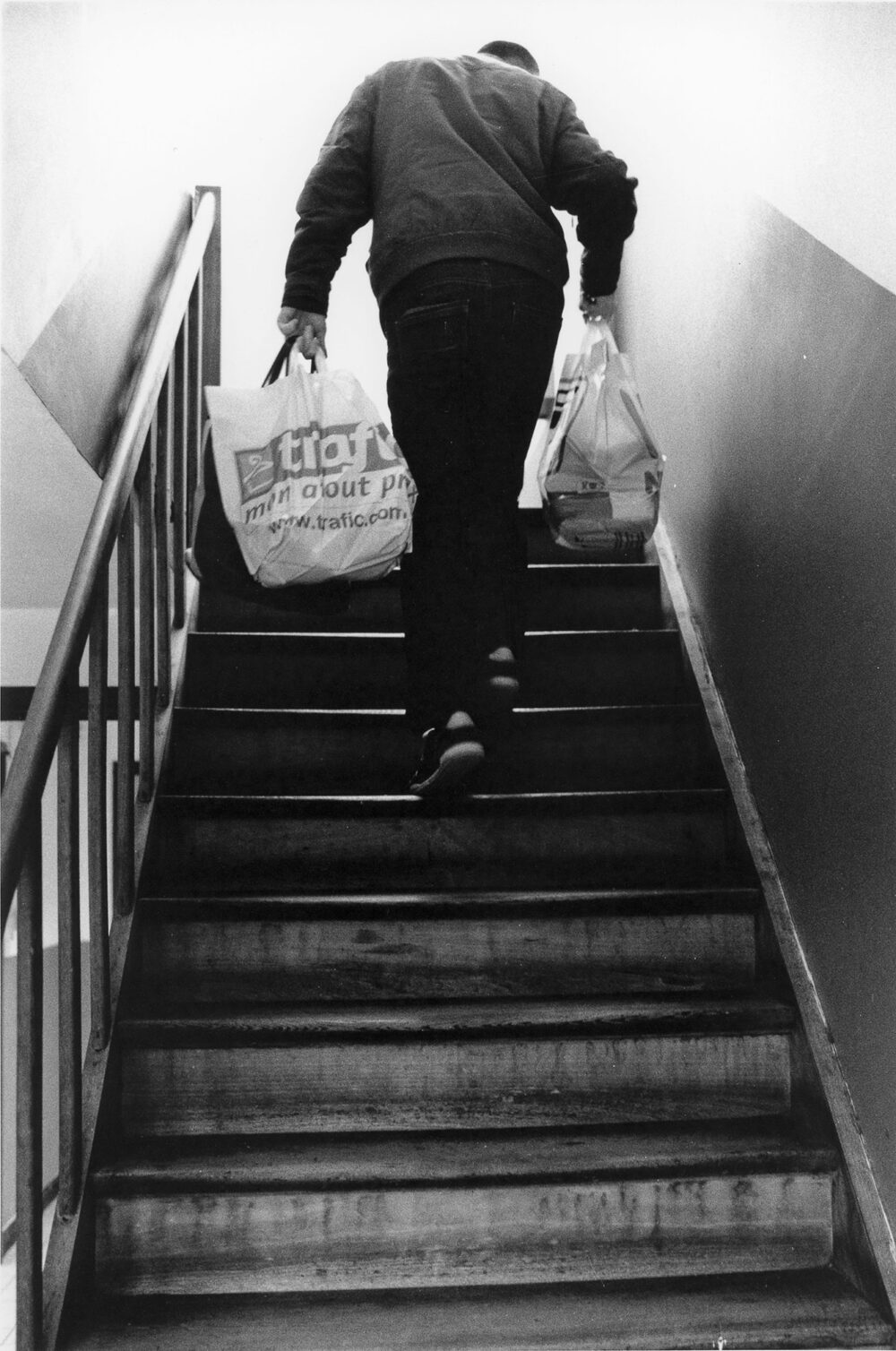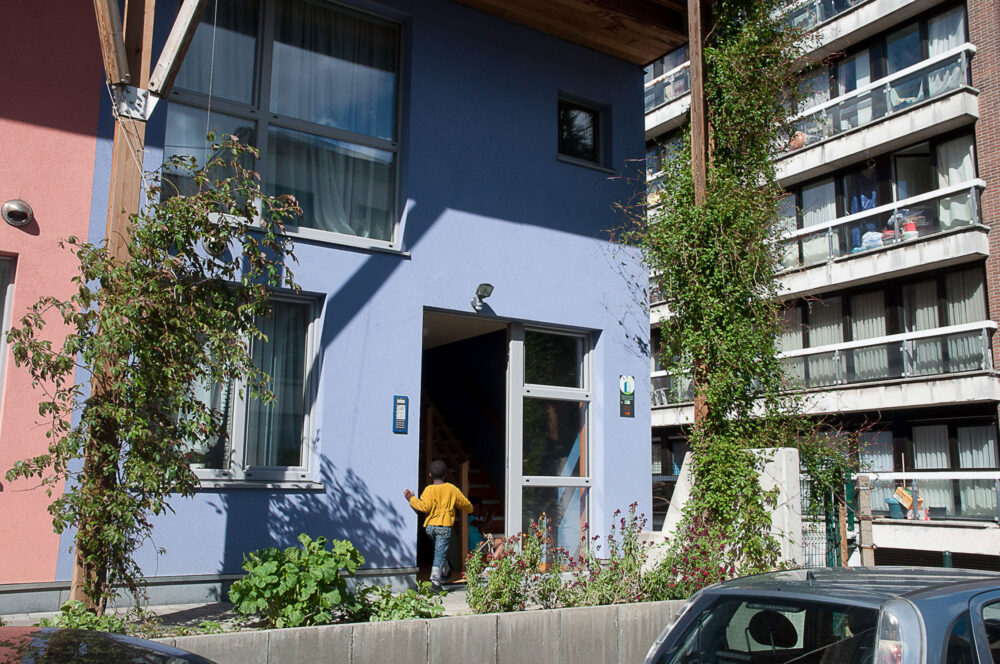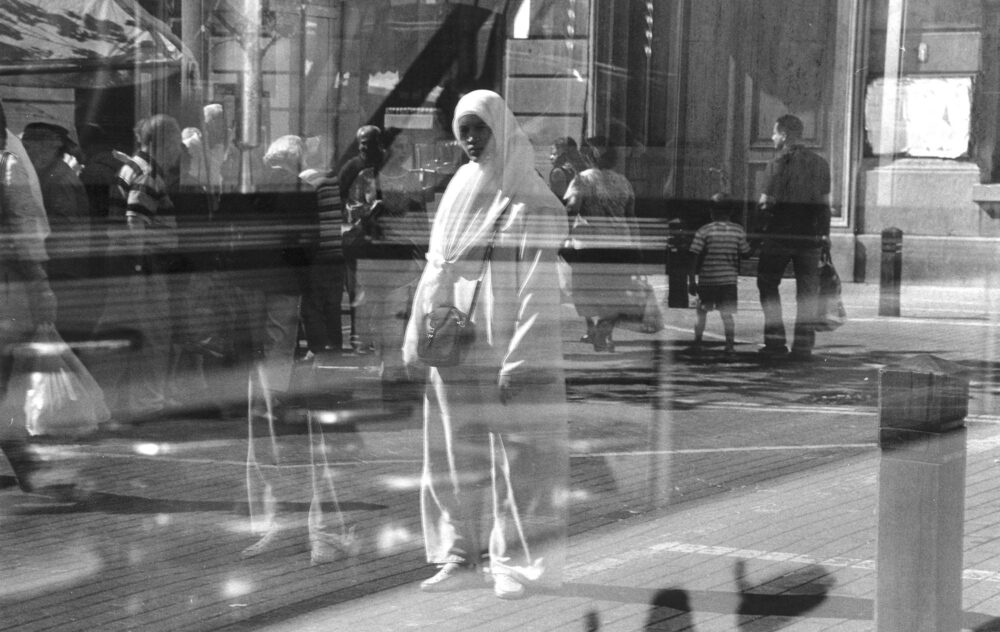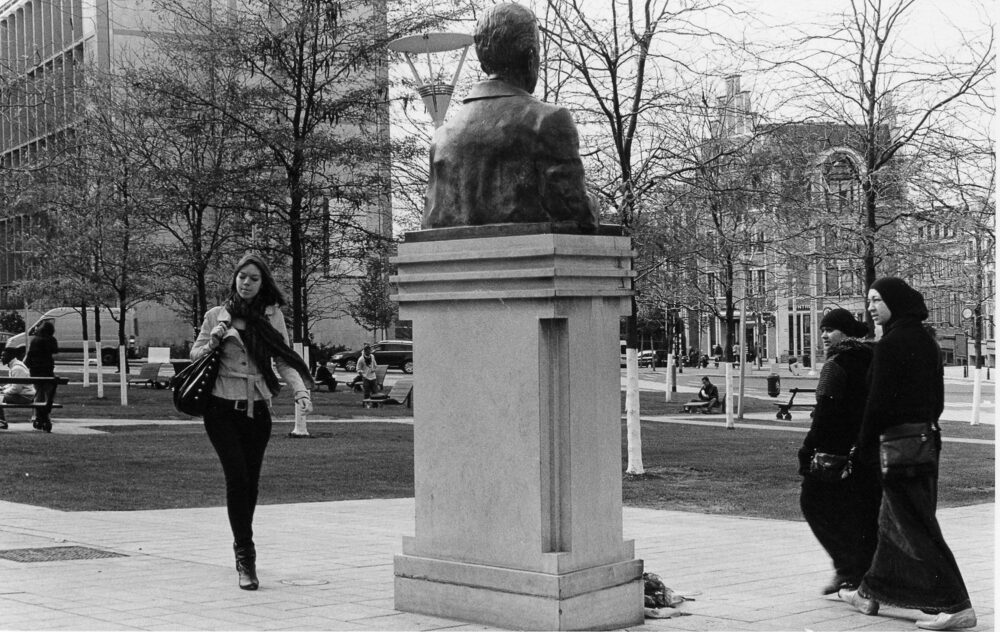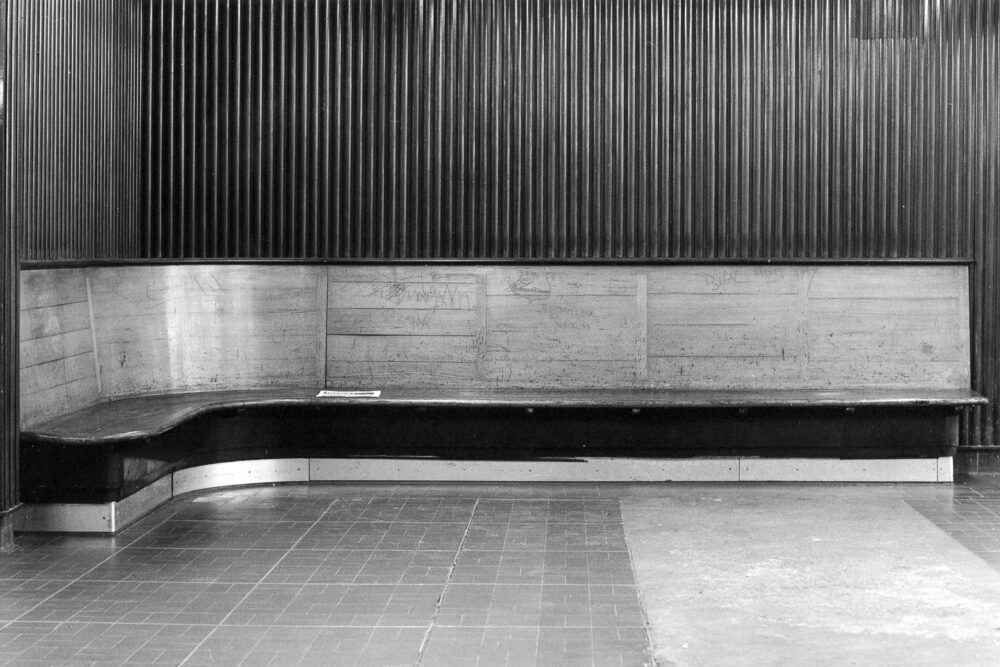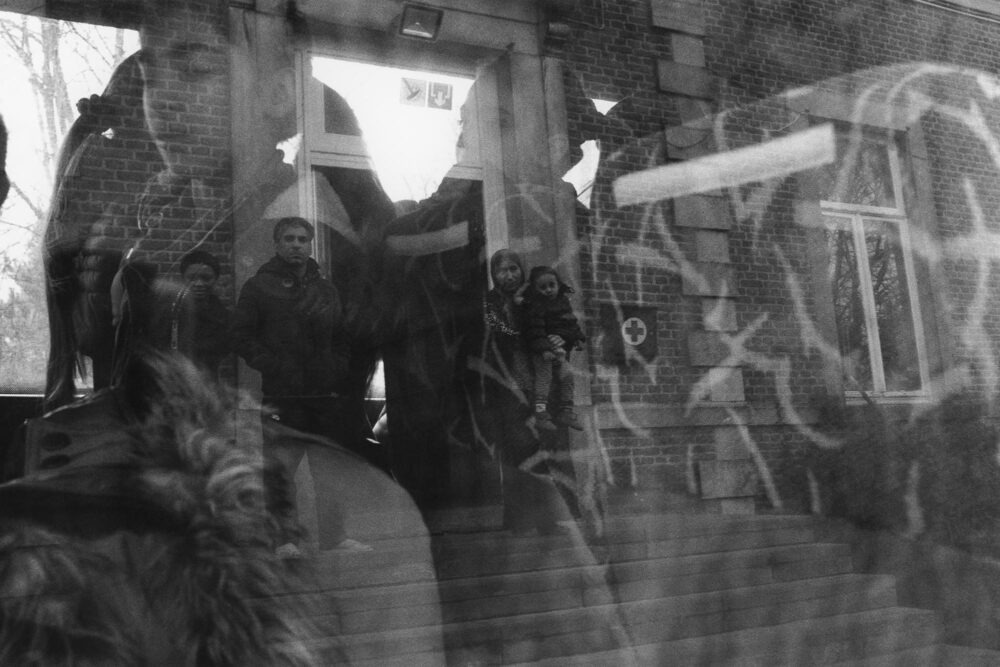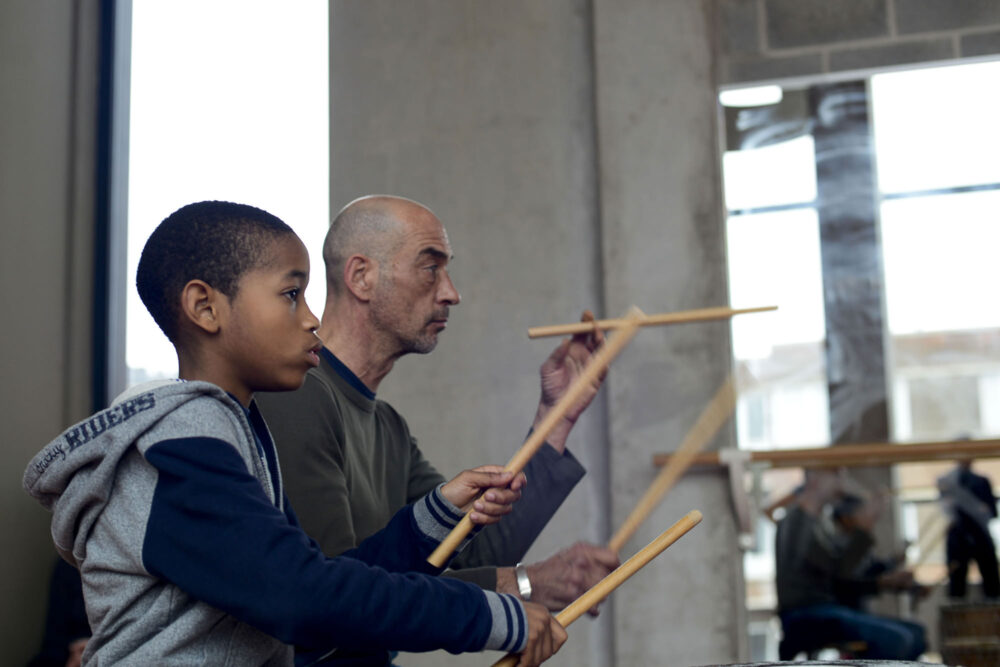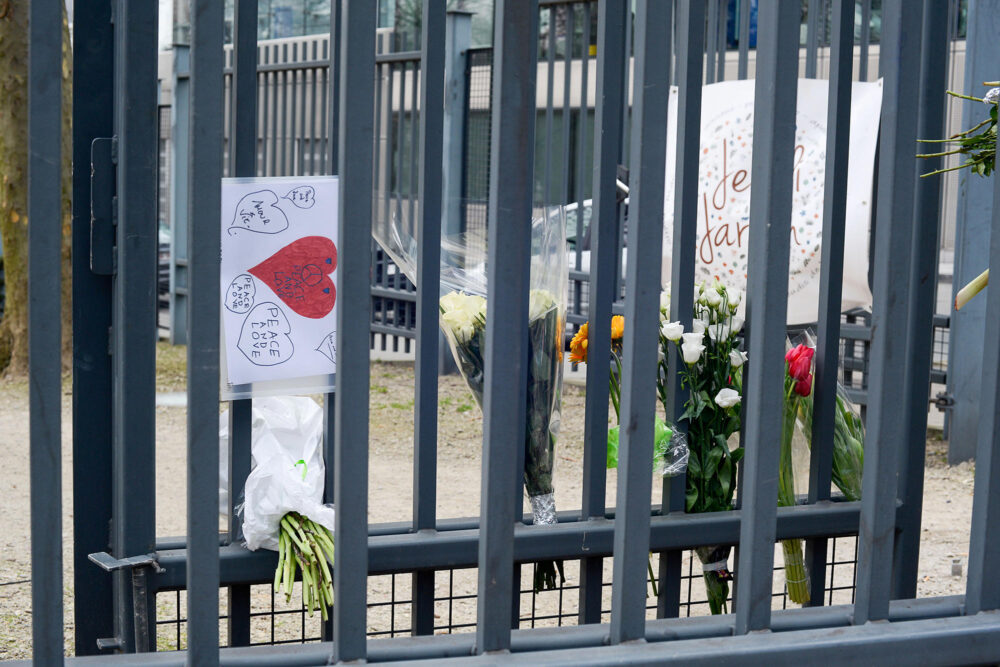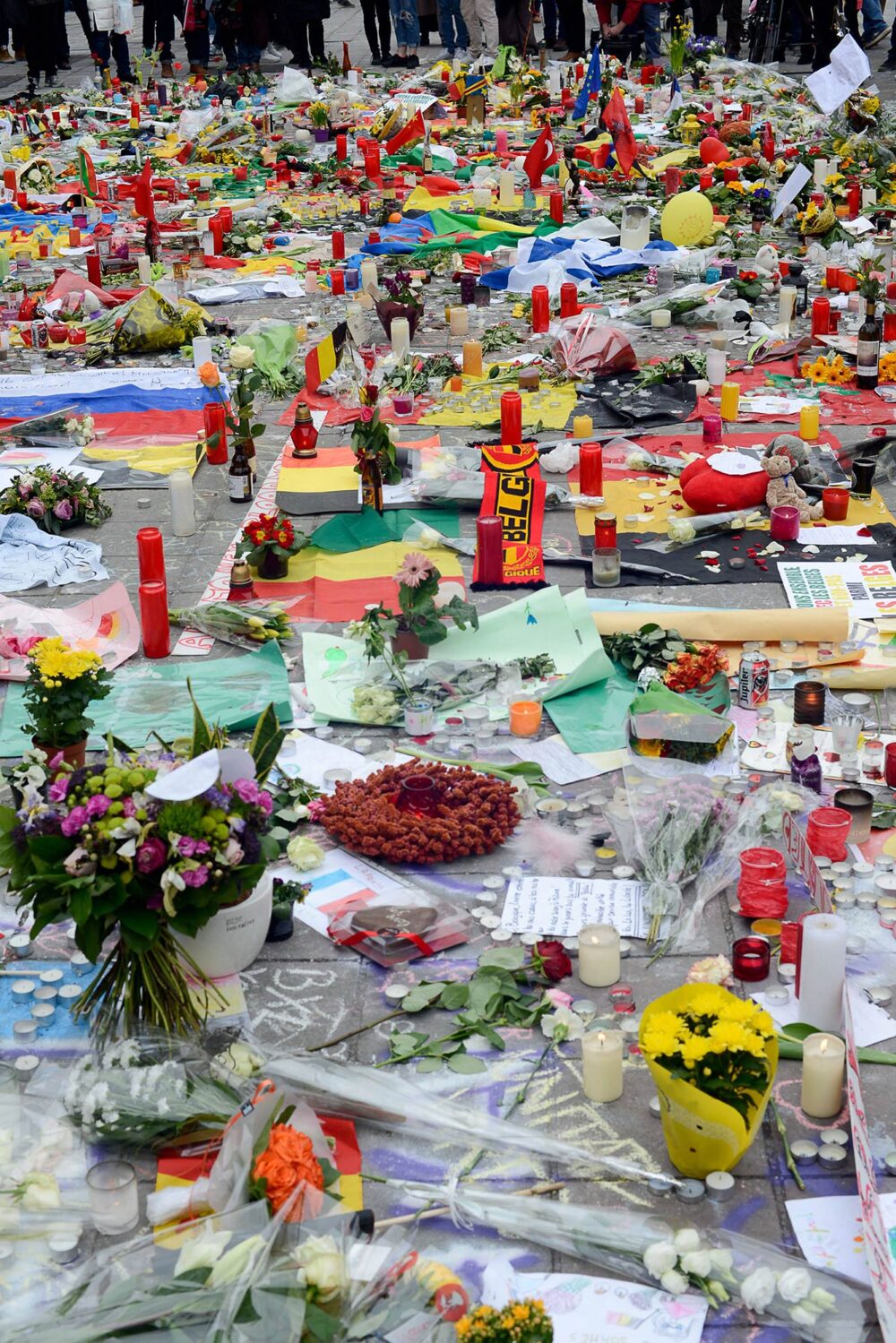PETER’S BIO
Peter, born in 1946 in Germany, an economist by training, has lived in Brussels for more than 40 years. He has worked in European institutions in fields as diverse and varied as economy, international relations, communication technologies and humanitarian aid and crisis response. This career path has resulted in a recurrent cultural enrichment and an openness to the richness and diversity of people in their respective environments in various parts of the world and especially in the Mediterranean basin and in Africa. Peter is a volunteer with the World Organisation Against Torture.
LEARN MORE
For a long time, a few years ago he started a photographic training at the Atelier photographique Contraste. As part of this training, Peter participated in the collective exhibition Vitrines: a mode of representation held at the Maison de l’Architecture in Brussels from January to October 2009.
Starting from this work, he presented in November/December 2010 in Algiers the exhibition Maghreb-Brussels: Our differences, our common wealth organized by the Delegation Wallonie-Bruxelles on site. In a slightly modified form, this exhibition was taken up by the Arab Cultural Centre of Brussels in November – December 2011 under the title Maghreb-Brussels at the beginning of the 21st century. As part of “Summer of photography 2012” in Brussels, he participated in the Contrasting workshop on participatory urbanism and the exhibition H – Urban from June to September 2012 at the Fondation pour l’Architecture – CIVA in Brussels.
In 2013, Peter and 4 other photographers created the Tête-bêche Collective, which produced two exhibitions in 2014 with contributions from each of the 5 photographers: “Femme aujourd’hui” and “Le Monde à l’envers (II)”.
In 2014, he participated in the collective exhibition Aptitudes/attitudes on the occasion of the 20 years of the Atelier Contraste (Brussels, Tour and Taxis) with two contributions: “Le Monde à l’envers (I)” and “Train en passage”. As part of the artists’ journey organized by the Municipality of Etterbeek in September 2014, he exhibits a series of film photographs under the title “Spaces in the city”.
The year 2015 is marked by his participation in the Festives d’Ascain where under the theme “Passage”, he exhibits during the summer, in giant format, six photos of the series “Uncertainty” which presented in full in spring 2016 at the Cultural Centre of Ciney and in autumn of the same year at Verhaeren gallery in Brussels.
Also in 2016 he participates with the Tête-bêche Collective in the Etterbeek Artists’ Journey under the title “Departure” with a series dedicated to Brussels under the shock of the attacks of March 22.
In the autumn of 2018, he exhibits during the month of September the two series of photos “Autrement et Incertitude” at the Espace Art Galerie in Brussels, followed by an exhibition during Etterbeek’s Parcours d’Artistes on the subject “Urban views…” The year 2019 is largely dedicated with the Tête-bêche Collective to the realization of the exhibition “Kijk…. Brussels” held at the Halles Saint-Géry in Brussels in October and November.
In 2020 he took part again with the Collectif Tête-bêche in the career of Etterbeek artists with his new series “Nichts”.
Despite or with COVID, he continues his work of photographic exploration of women and men in their cultural, social and urban environments and human relationships in our societies. In some cases people dominate and in others it is rather environments that lead to people.
For a long time, a few years ago he started a photographic training at the Atelier photographique Contraste. As part of this training, Peter participated in the collective exhibition Vitrines: a mode of representation held at the Maison de l’Architecture in Brussels from January to October 2009.
Starting from this work, he presented in November/December 2010 in Algiers the exhibition Maghreb-Brussels: Our differences, our common wealth organized by the Delegation Wallonie-Bruxelles on site. In a slightly modified form, this exhibition was taken up by the Arab Cultural Centre of Brussels in November – December 2011 under the title Maghreb-Brussels at the beginning of the 21st century. As part of “Summer of photography 2012” in Brussels, he participated in the Contrasting workshop on participatory urbanism and the exhibition H – Urban from June to September 2012 at the Fondation pour l’Architecture – CIVA in Brussels.
In 2013, Peter and 4 other photographers created the Tête-bêche Collective, which produced two exhibitions in 2014 with contributions from each of the 5 photographers: “Femme aujourd’hui” and “Le Monde à l’envers (II)”.
In 2014, he participated in the collective exhibition Aptitudes/attitudes on the occasion of the 20 years of the Atelier Contraste (Brussels, Tour and Taxis) with two contributions: “Le Monde à l’envers (I)” and “Train en passage”. As part of the artists’ journey organized by the Municipality of Etterbeek in September 2014, he exhibits a series of film photographs under the title “Spaces in the city”.
The year 2015 is marked by his participation in the Festives d’Ascain where under the theme “Passage”, he exhibits during the summer, in giant format, six photos of the series “Uncertainty” which presented in full in spring 2016 at the Cultural Centre of Ciney and in autumn of the same year at Verhaeren gallery in Brussels.
Also in 2016 he participates with the Tête-bêche Collective in the Etterbeek Artists’ Journey under the title “Departure” with a series dedicated to Brussels under the shock of the attacks of March 22.
In the autumn of 2018, he exhibits during the month of September the two series of photos “Autrement et Incertitude” at the Espace Art Galerie in Brussels, followed by an exhibition during Etterbeek’s Parcours d’Artistes on the subject “Urban views…” The year 2019 is largely dedicated with the Tête-bêche Collective to the realization of the exhibition “Kijk…. Brussels” held at the Halles Saint-Géry in Brussels in October and November.
In 2020 he took part again with the Collectif Tête-bêche in the career of Etterbeek artists with his new series “Nichts”.
Despite or with COVID, he continues his work of photographic exploration of women and men in their cultural, social and urban environments and human relationships in our societies. In some cases people dominate and in others it is rather environments that lead to people.


